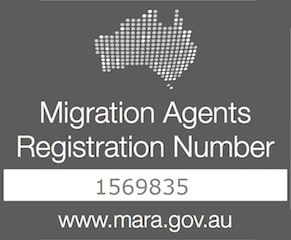Partner Visa FAQs
The Q&A below covers subclass 309/100 visas and prospective marriage visa subclass 300
Can I lodge my partner visa application in Australia?
You should enter Australia on an appropriate visa for your intended purpose and length of stay. If you are intending to move to Australia and live there permanently, you should obtain an appropriate migration visa before you go.
Please note: If you have a “no further stay” condition on your temporary visa, it may not be possible to apply for a further visa from within Australia.
How long will processing of my Partner application take?
The current expected processing time for Partner Migration at the Australian Embassy, Berlin is at least 10-14 months from the date you lodged your application – for most cases. Note that actual processing times will vary due to a variety of factors, and more complex cases which require an interview or referral of documents in relation to health and character requirements will take much longer.
Current processing time provided by the Immigration Department
Partner visa - Average Processing time (Updated on )
| Stream | 75% Of Visas Processed | 90% Of Visas Processed |
The minimum processing time is based on the number of applications currently awaiting processing and the planning levels available in the family stream of the Australian migration program, which is set by the Australian Government each year.
The department currently receives more applications than there are places available in the family stream of the migration program. This means that there is some increase in processing times for these visas. It is therefore recommended that you do not take any irreversible action during the processing of your application, such as ceasing employment, selling property or purchasing airline tickets.
Can my application be processed sooner?
Applications are processed in the order they are received and there is little scope to process applications earlier. If you feel you have compelling or compassionate reasons why your application should be processed earlier, please provide a written statement to your case officer outlining those circumstances. It should be noted that as a general policy, circumstances such as employment in Australia; schooling for children; pregnancy; selling your house; or separation from your partner is not considered compelling or compassionate.
What documents should I provide as evidence of identity and marital status?
You should provide certified copies of the usual documents of identity that are required in your country of birth (or residence, where relevant), which must be translated into English if they are not in English already.
If available in your country, you may also provide multilingual or international civil status records, (for example birth, marriage, death certificates) providing English is one of the languages on the record.
Some European countries will also provide an extract of the population register instead of a birth certificate, and this is acceptable if it includes details of your parents, and is translated into English or in English.
You should include certified copies of your bio data page of passport or travel document. Please ensure the copies are high quality colour copies.
Certified copies
Some of the documents you need to submit for your partner migration visa application have to be submitted as certified copies. ‘Certified copies’ are copies authorised, or stamped as being true copies of originals, by a person or agency recognised by the law of the country in which you currently reside. The appropriate certifying authorities vary from country to country. Some country specific information is available.
See: Certified Copies
Translations
Original documents in languages other than English must be accompanied by an English translation. The English translations must be appropriately endorsed translations. In Australia, translators must be accredited by the National Accreditation Authority for Translators and Interpreters. Their accreditation details must be recorded on the translation. Translations provided by non-accredited translators outside Australia should be endorsed by the translator with their full name, address, telephone number, and details of their qualifications and experience in the language being translated.
Will you confirm receipt of my documents?
To confirm receipt of your documents, it is recommended you send them via courier or registered mail. As a general practice, we will not confirm receipt of your documents.
What evidence should the sponsor provide regarding Australian citizenship or permanent residence
As evidence of your sponsor’s Australian citizenship you should submit a certified copy of the bio data page of his/her passport, Australian citizenship certificate or Australian birth certificate. If your sponsor is a permanent resident of Australia, please submit a certified copy of his or her passport.
My children are Australian citizens – do I need to include them in my migration application?
If your children are Australian citizens they cannot be granted a visa and should travel to Australia on an Australian passport. When you complete the application form 47SP you should declare all of your children on the form, but children who are Australian citizens are not included as applicants and should be marked as ‘not migrating’ even if they will be accompanying you to Australia.
Relationship evidence
Every relationship is different and we may need different kinds of documents to make an assessment of your application. Your case officer will contact you once he/she has made an assessment of the submitted documents and if further documentation is necessary. For further information on the kind of documents you should normally include in your application, please use the step-by-step guide on our webpage.
We have not lived together for 12 months, but would like to apply for a de facto partner visa – is that okay?
To be granted a Partner visa as a de facto partner (opposite-sex or same-sex), you and your sponsor must show that you have been in a committed de facto relationship for the entire 12 months immediately prior to lodging your application.
Note that this 12 month period is assessed from the time the relationship became a de facto partner relationship, and not from the time you first met.
Please read Fact Sheet 35 “One-Year Relationship Requirement” before you lodge your application to determine whether this is the correct visa category for you.
See: Fact Sheet 35 – One-Year Relationship Requirement
I want to apply for a de facto partner visa, but I’m still married to someone else. Is that a problem?
To apply for a Partner visa as a de facto partner (opposite-sex or same-sex), you and your partner must show that you have been in a de facto partner relationship for the entire 12 months immediately prior to lodging your application and that this relationship was to the exclusion of all others. If either you or your sponsor are still married to another person at the time of lodgement of a de facto partner visa, you will need to provide evidence that your previous relationship is no longer ongoing.
What if the sponsor has sponsored someone to Australia before?
Sponsorship limitations: You may not be able to sponsor your partner if you have previously sponsored 2 other partners for migration to Australia; or have sponsored another partner within the last 5 years or were sponsored as a partner yourself within the last 5 years;
You may still be permitted to sponsor your partner in compelling circumstances, such as:
If your previous partner has died or abandoned the relationship leaving young children;
if your relationship with your current partner is long standing; or if you and your partner have children of your relationship.
Note that this cannot be assessed prior to lodgement of an application.
When should I do the required medical examinations?
Medical examination(s) with a panel doctor approved by the Australian Government will be requested as the assessment of your application progresses, and you will be given the relevant details at that time.
Can I do the medical examination with my own doctor?
No. Under no circumstances can we accept a medical examination conducted by a private doctor who has not been approved by the Australian Government.
How long is a Prospective Marriage, subclass 300, visa valid for?
A subclass 300 Prospective Marriage visa is valid for 9 months from date of grant. You must marry the sponsor within the validity of the visa.
What if I get married while you are processing my Prospective Marriage (subclass 300) visa?
If you marry your partner before your Prospective Marriage visa is finalised there is a provision for you to be considered for a Partner visa without the need for you to lodge a new application. Please advise your case officer of your change of circumstances and you will be given further information at that time.
Can I travel to Australia while my Partner visa application is being processed?
You may apply for other visas while your migration application is being processed. This will be assessed against the criteria for that visa subclass and will not affect the assessment of your migration application. Further information on other visas to Australia can be found on our website, www.border.gov.au.
Please be aware that if you enter Australia on a one way ticket you may be asked by Australian immigration authorities, on arrival at the airport, about your plans for departing Australia. If entering Australia on an ETA or Tourist visa the immigration officer will need to be satisfied that you are a genuine visitor. You would need to explain your intentions to the officer so that the officer is satisfied that you do not intend to stay beyond the period which your visa allows. This also applies if you have an ongoing application for a partner visa.
If your travel to Australia results in you spending a cumulative period of 12 months or more in Australia in the last 10 years, you will need to provide an Australian Federal Police (AFP) check before your visa can be granted. For further information, please see the following website:
See: http://www.afp.gov.au/what-we-do/police-checks/national-police-checks.aspx
Can my Partner visa be granted while I am in Australia?
No. If you have lodged your partner visa outside Australia, it is a legal requirement that you also be outside Australia at the time of visa grant. If you are in Australia when your visa is ready for grant, you will need to depart. You can depart for any country in the world and you should spend at least 4 working days outside Australia to allow for processing of your visa. Working days do not include Saturday, Sunday or Public Holidays. You should keep your case officer informed of your contact details.
After my visa is granted, do I have to travel to Australia by a certain date? What is the initial entry date?
Yes. When your visa has been granted, you will be advised of your ‘initial entry date’ and it is a condition of your visa that you enter before that date. The date is based on the expiry date of your health and character checks which are generally valid for 12 months from the date they were issued. If you fail to enter Australia by the initial entry date you visa may be considered for cancellation, unless you have compelling reasons for not meeting that condition.
It is not possible to change the initial entry date on the visa after it has been granted.
What is two stage Partner processing?
Applying for a Partner visa is a 2-stage process. You apply for a provisional (subclass 309) and permanent (subclass 100) visa at the same time. If you meet all the initial criteria, you will be granted a provisional Partner visa. This visa remains valid until a decision is made on your permanent visa application, which is generally 2 years after you initially applied for your visa. If you continue to meet all legal requirements, you will be granted a permanent subclass 100 Partner visa, usually after your arrival in Australia.
Can I get a permanent Partner (subclass 100) visa without waiting the 2 years?
The two year waiting period can be waived if:
– at the time you apply, you have been in a Partner relationship with your partner for 3 years or more, or 2 years or more if there are children from your relationship.
Please note that the three year period is assessed from the time you started a committed married or de facto relationship with your partner, and NOT from the time that you first met or formed a casual relationship.
Your case officer will assess the evidence and documentation provided with your application to determine if you meet the requirements for waiver of the two year period. If you are granted the provisional subclass 309 visa, after two years you will be contacted by a case officer with regard to the assessment of your application for the permanent subclass 100 visa. This will be granted if you continue to meet the relationship requirements and other legal criteria.









